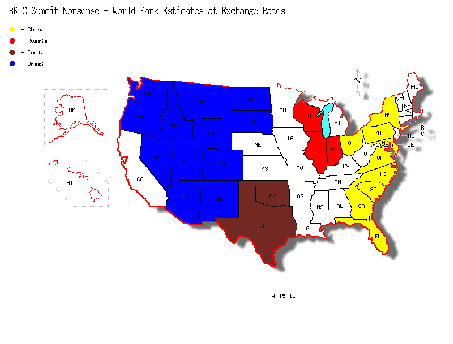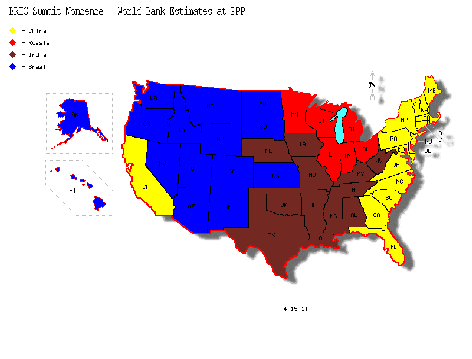Not required, but strongly encouraged.
Edge.org asked one of the really big public intellectuals, Stephen Pinker, to suggest one question, and then ran it by 150 other public intellectuals. Here’s the question:
WHAT SCIENTIFIC CONCEPT WOULD IMPROVE EVERYBODY'S COGNITIVE TOOLKIT?
That’s a pretty good topic to expose college students to (in any class). So here goes.
What struck me is how many of the ideas are from economics, or applicable to economics, even though they didn’t actually survey many economists. Here’s what caught my eye (these are in order going through the pages of the site, but I didn’t link to them — you should go browse).
Haecceity: “All objects may be categorized into groups on the basis of some shared property but an object within a category is unique by virtual of its haecceity. It is haecceity that makes your wedding ring authentic and your spouse irreplaceable, even though such things could be copied exactly in a futuristic science fiction world where matter duplication had been solved.” We talked a bit about this in class with regard to economic growth. What is going to happen to growth as humans introduce increasingly non-haecceitic versions of parts of themselves?
TANSTAAFL: “There Ain’t No Such Thing As a Free Lunch”. Heinlein coined this one. Do you thing members of Congress (and some voters) could get a clue about this?
PERMA: “Is global well being possible?”. See week 1 of our class.
Positive Sum Games: exchanges which are voluntary because they make both parties better off. This is the foundation of economics.
Comparative Advantage (suggested by a psychologist!)
Structured Serendipity: see the blog I write and the blog you write for this class.
Gedankenexperiment: German for “thought experiment”. This is what economics has to be all about, because we can’t do controlled experiments like in the hard sciences.
Jensen’s Inequality: useful for any time we need to think about expectations, and decisions based on them.
Externalities: (suggested by another psychologist)
Self-Serving Bias: we all think we’re above average. Obama is certain of this.
Constraint Satisfaction: see ECON 2500.
Pareto Principle: one of Dave Berri’s favorites. The distribution of skill isn’t a bell curve — it’s more like an exponential. The people who are really good at something are a lot better than you think.
Recursive Structure: that’s what’s going on in your Solow model spreadsheets when one row depends on the previous one.
Risk Literacy: Understanding the scale of risks, and acting appropriately about them. I’m not happy about the nuclear crisis in Japan, but I’m way more ticked off at the people who have trouble conceiving that it is a small problem compared to the disaster as a whole. Wayne Roberts loves the guy who suggested this – Gerd Gigerenzer.
Absence and Evidence: “absence of evidence is not evidence of absence” is a basic thought process in economics.
Path Dependence: Why is Word the dominant word processor?
Duality: the post is all about physics, but Samuelson introduced this into economics about 65 years ago, and it comes up all over constrained optimization (like in ECON 2500 or ECON 3010).
Homo Dilatus: humans are the “procrastinating ape”. Option theory in finance suggests that this creates value.
Kakonomics: the preference for low quality payoffs. We really don’t understand why some people accept crap.
Correlation Is Not a Cause: see just about all public policy.
The Mediocrity Principle: you are not special. A very useful realization for understanding public policy.
Superveneince: This is what macroeconomics is.
Confabulation: This helps explain union protesters in Wisconsin last month, and Tea Partiers dissatisfied with budget cuts this month.
Apophenia: perceiving patterns where they don’t exist. This is why everyone except macroeconomists knows what caused the last recession.
Of course, there are many more. The site says there were 146 contributors of 115,000 words. That’s about 3 book pages each.







